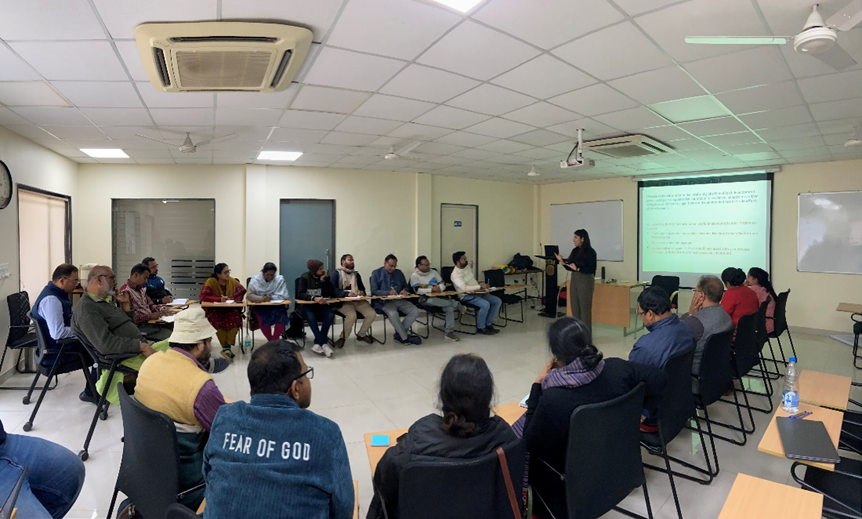
In this two-part blog series, we revisit our experience in capacity building for civil society organisations (CSOs) working across India’s diverse rural landscape, where there is an urgent need to enhance climate adaptation knowledge to address the multi-dimensional challenges of climate change. This first blog delves into the inception of the Center for Study of Science, Technology and Policy’s (CSTEP’s) engagement with Climate Asia (CA) on their Climate Action for Civil Society Organisation Development Programme for CSOs, its relevance to climate action, and knowledge gaps it aims to address.
According to the Global Climate Risk Index 2021, India continues to be among the top ten countries at risk due to climate change. With over 70% of its population living in rural areas and depending heavily on climate-sensitive sectors, such as agriculture or fisheries, for their livelihoods, the increasing climate variability poses higher risks. Prioritising measures to reduce the impacts of climate change and build community resilience in vulnerable regions becomes necessary for India to maintain its developmental trajectory and honour its Nationally Determined Contributions (NDCs) and Sustainable Development Goal (SDG) commitments.
A large number of CSOs operating in India’s rural regions play an invaluable role in achieving the national commitments.
These entities have long been at the forefront of executing social development initiatives at different scales. Collaborating closely with marginalised and vulnerable communities, they tap into local skills and indigenous knowledge to translate India’s extensive rural development programmes into tangible and impactful outcomes.
As an organisation working at the intersection of climate, community, and capacity development, CA identified 11 CSOs from Uttar Pradesh, Odisha, Bihar, and Jharkhand to be part of the inaugural cohort of their programme.
These CSOs recognised that several of their initiatives, although targeting social development, address the adverse effects of climate change either directly or indirectly. But, these climate-related benefits are often overlooked.
CSTEP — a science, technology, and policy think tank — was roped in as the knowledge partner to offer a climate lens, particularly on the adaptation perspective, to the programme. Through discussions with the CA team and subsequent engagements with the cohort, we were able to identify the following gaps and capacity-building needs:
1. CSOs’ understanding of the science and impacts of climate change is invariably gained from informal sources and community-led knowledge sharing. While this helps them to perceive the local nuances, the following pitfalls were noted:
· Reliance on outdated information
· Use of misinformation

Through this engagement and informal discussions, we could fortify our knowledge on the implementation of best practices and challenges faced by CSOs across their rural geographies. Fascinating narratives on adapting cropping patterns to seasonal changes, sustainable sourcing of forest produce, empowering marginalised communities with alternative farming techniques, the role of women and youth in climate action, and more were discussed. We are inspired by their resilience and commitment to the soil, which we hope to take forward in developing more nuanced adaptation policies with our future work.
In the second article, we will look at the design and development of climate modules, as well as interactions and learnings from the experience.
The authors work in the Adaptation and Risk Analysis team of the Climate, Environment and Sustainability Sector at the Center for Study of Science, Technology and Policy (CSTEP), a research-based think tank.
More About Publication |
|
|---|---|
| Date: | 16 January 2024 |
| Contributors: | |
| Publisher: | CSTEP |
| Related Areas: | |
Get in touch with us at
cpe@cstep.in